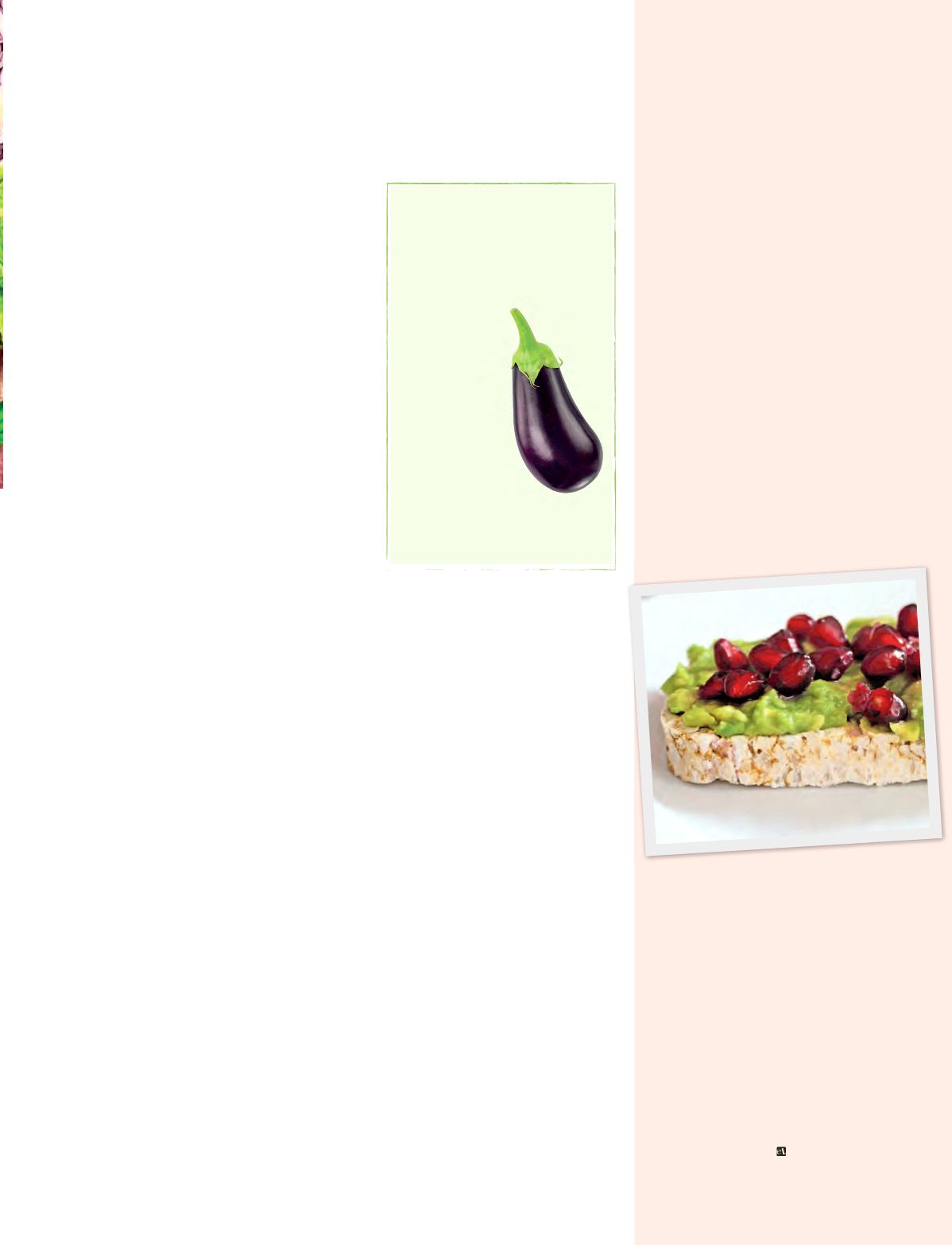

HEALTH&FITNESS
antibiotics, but they are likely to be either
caged or free-range. “Certified organic
eggs” means the hens are free-roaming,
have access to outdoors and are fed an
organic diet.
Are organic foods truly more
nutritious than non-organic foods?
This question remains controversial, as
some studies have shown organic foods
to be more nutritious than non-organic,
while other studies have shown similar
health benefits for both. What is very
clear, however, is that non-organic foods
have much higher pesticide, growth
hormone and antibiotic residues than
organic foods. It is widely thought that
these chemical residues, taken over
a lifetime, even in small amounts at a
time, may be a key contributor to the
development of cancers and other
chronic degenerative diseases.
Often, there are more antioxidant
compounds in organic produce than in
conventional produce, but the rest of the
nutritional profile is similar.
It’s really important for children,
pregnant and lactating women to eat
organic foods, and also for cancer
patients, who are likely to be more
affected by pesticide and hormonal
residues.
Why is organic more expensive
than non-organic?
Organic agriculture is more expensive
than conventional agriculture, because
more labour is often required, farms are
generally smaller and not subsidised
by government schemes, and the
certification process can be expensive
for farmers.
So, if I can’t afford to buy only
organic products, which are the
key food items to purchase?
The “dirty dozen” is a term used by the
Environmental Working Group (EWG) to
describe produce most contaminated
with pesticides. It includes apples,
celery, strawberries, sweet bell peppers,
lettuce, cherry tomatoes, potatoes,
hot peppers, nectarines and peaches,
grapes, cucumbers and kale and collard
greens. These are the cases where it’s
most useful to buy organic.
Is all soymilk organic?
Most soymilk is, in fact, not organic. This
is a concern since a large percentage of
the soy crops worldwide are genetically
modified organisms (GMOs), and the
true health impact of such organisms is
currently unknown and hotly debated.
To ensure that the soymilk we consume
is non-GMO, it’s important for a soymilk
brand tocarry either the “non-GMOProject
Verified Seal” or an official “organic” seal.
Why doesn’t Singapore have
organic certified products?
Singapore is unable to get a real organic
certification logo because of the density
of its air traffic at relatively low altitudes.
Due to the island’s small size, airplanes
landing in Changi and at military sites
fly over the whole island, depositing
pollutants in the atmosphere and on
potential agricultural sites.
Some farmers, like Zenxin Organic
for example, are as close to “organic”
as we can get here in Singapore.
“Freedom Eggs”, from hens raised in
Singapore, are not far from being true
organic eggs, as the hens aren’t caged
or given hormones or antibiotics in their
feed. All truly organic products found in
Singapore, however, come from abroad.
Thailand is the closest country with a
reliable organic certification logo.
Ingredients:
•
Organic rice cracker
•
Avocado
•
Pomegranate
•
Organic lemon
Method:
Mash a ripe avocado with a dash
of fresh lemon juice and spread it
generouslyonanorganic ricecracker
(each cracker uses approximately
one quarter of an avocado). Sprinkle
with pomegranate seeds and enjoy.
For more sensible snack ideas,
visit
expatliving.sg
.
GUILT-FREE
SNACK
Looking for a new and healthy way
to satisfy your snack attack?
Body
Temple
, a holistic women’s wellness
centre in Singapore which offers
fitness classes, personal training
and nutritional guidance, recently
challenged its members to share
some of their best ideas for snacks
containing up to 200 calories. With
just four simple ingredients, this
one – courtesy of South African
expat BELINDA ARAUJO – is easy
to make and bursts with fresh,
summer flavours.
The “Clean Fifteen”
The EWG devised this list of 15
items likely to contain the least
amount of pesticide, when grown
either conventionally or organically.
These are your safest bets.
• Asparagus
• Avocado
• Cabbage
• Cantaloupe
• Eggplant
• Grapefruit
• Kiwi fruit
• Mangos
• Mushrooms
• Onions
• Papaya
• Pineapple
• Sweet corn
• Sweet peas (frozen)
• Sweet potatoes



















